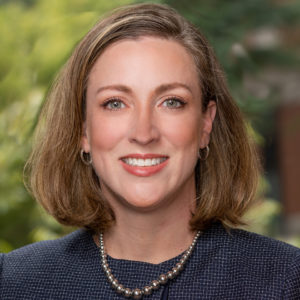 Progressive Voice is a bi-weekly opinion column. The views expressed are solely the author’s.
Progressive Voice is a bi-weekly opinion column. The views expressed are solely the author’s.
By Maurine Shields Fanguy
“What if next year school could be like a role-playing game and we could see avatars of our friends online?” my rising fifth-grader asked.
In that moment, I realized I was so mired down in fall logistics, I had not considered new possibilities opened with distance learning (DL). In business, disruption leads to innovation. Perhaps we will find the silver lining of a fundamental transformation in delivering K-12 education in this pandemic, and beyond, if school administrators, teacher, and parents throw out the old rules and ask, “what if?”
What if:
School administrators and parents reimagine the school calendar?
With a fundamental change in learning delivery, we have a unique chance to shift from an agrarian-based calendar to a modified year-round calendar. Two-week Fall, Winter, and Spring breaks would allow for intercession learning for students who need strengthening or optional enrichment. Breaks offer a respite for families who must be hands-on with DL. Quarterly breaks also allow time for deep cleaning schools or to re-quarantine.
School administrators also open enrollment countywide in some online elective and enrichment courses?
Could some unique offerings be opened to any Arlington Public School (APS) student, similar to Outschool? Imagine elementary art with recycled materials, middle school yoga, or high school history through a musical theater class open to any APS student regardless of zoning? We might approach discussions on boundaries and equity differently if geographic barriers are sometimes taken out of the equation to allow students from across the county to come together to explore their passions and maximize the impact of teachers with unique expertise.
Teachers transform the school day with bite-sized microlearning and the use of “Agile” principles?
“Agile” is commonly used in software development to improve quality, transparency and flexibility in achieving transformational outcomes. In a school, Agile could encourage regular student-led, teacher-coached reflection on work completed, identifying lessons learned and determining improvement areas for the next sprint. Agile could help bridge the achievement gap with teachers able to customize learning, offer more frequent feedback, and provide interventions earlier.
Studies show bite-sized learning can be more effective than traditional lectures and better matches the human attention span. Khan Academy uses this approach to enable learners to go at their own pace and move on when they are ready.
Could APS use this microlearning model to present shorter, engaging learning blocks with teacher interaction to answer questions or explore content in more depth through the day? This flexibility is critical for families who struggle with providing supervision for learning during the workday, households with multiple children and limited bandwidth connectivity, or for students needing to revisit concepts for mastery. Microlearning could also be a foundation to better outcomes for special education students and English learners.
“Agile” in education could be based on teacher-led, 6-8 student “squads” achieving learning objectives in 2-3-week sprints. These squads are an alternative to informal, parent-formed “pods,” which could exacerbate inequity.
Parents are enabled to be full partners in learning?
Traditionally, teachers lead the majority of learning during the school day with parents perhaps supervising homework or helping prepare for a test. With DL or even the hybrid model, parents are critical partners to success. For parents overwhelmed at the prospect of being at-home teachers’ aides, the APS announcement of “Parent Academies” is promising, but those must be year-round to have a meaningful impact on achievement. My rising fifth-grader scolds me when I mention “carrying” and “borrowing” in math and reminds me that it is now called “regrouping,” proving that Parent Academies are needed.
More importantly, as Yassmina Hassoun wrote in her Progressive Voice column, APS must find ways to connect with more parents — inclusively. APS could use Mondays for more frequent parent-teacher connections, for example, instead of relying on twice-yearly conferences that are often too short and too late for course correction.
It is time for all of us to open our minds and ask, “what if?” to achieve the greatest outcomes for our students.
Maurine Shields Fanguy, a parent of rising 5th and 8th grade APS students, has served as a PTA President, on APS advisory committees, and in other volunteer roles. An Army brat who attended 11 schools, she is proud to have adopted Arlington as her hometown.

